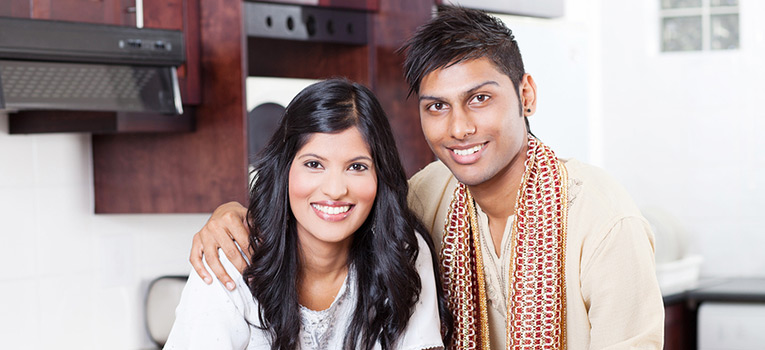
Although India has seen a lot of changes and revolutionary moments in its recent history, one particular thing remains to be practiced not just in that country, but in most Indian families wherever they may live. The phenomenon of an arranged marriage is still valued as the best way to ensure a happy, family life and partnership. But does arranged marriage actually work, and are there some ways to ensure its success?
A huge majority of Indians choose an arranged marriage over a free-choice one even today. As they come from all types of social backgrounds, different educational and westernized levels, and different locations, it’s pretty obvious that the issue is not connected to a specific group of people. Indians simply prefer venturing into the institution of marriage without having much say in it.
How Does It Work?
An individual’s parents and/or older family members search for potential spouses through their community, social circle, or even by advertising on marriage websites and in newspapers. After finding prospective partners, family gatherings are arranged after which the couple has some time for courtship (under the supervision of a chaperone). If neither party complained about the prospective match and asked to put a stop to it (if they’re allowed to do so), they are able to spend some time together alone. The decision is usually made in a couple of days.
Numerous studies have shown that arranged marriages are at least as successful as free-choice ones, if not even more so. But how is this possible? How can two people who barely know each other make a decision that quickly which, in most cases, proves to be the right one?
Arranged marriages don’t possess one huge, and at the same time, difficult aspect which free-choice marriages do – options. Everyone complains how difficult it is to find a “good man” or a “good woman,” all the while they prescreen potential partners based on outward appearances (like looks and material possessions). In arranged marriages, an individual who’s looking to get married respects the parents, grandparents, or other older family members and prescreens the potential partners themselves, which narrows the options substantially.
Secondly, the question of the number of options presents itself – when should one stop searching? How many people should a person date before making a choice and settling for someone? When someone else (who has your bets interest at heart) makes the choice instead of you, you don’t have to deal with this issue. At the end of the day, when do we actually choose the objectively best partner for us ourselves? We are not led by our minds, rather our hearts.
Another huge part of free-choice marriage is the birth of big expectations. Let’s face it, when you’re in love and you decide to get married, you have an image of a perfect life stuck inside your head. When something doesn’t go as you planned, you’re left with despair as marriage isn’t what you expected it to be – a love fairytale. In arranged marriages, the couple doesn’t know each other that well to have huge expectations. The people who nitpick through the list of potential spouses for their family member give greater weight to financial security and overall compatibility, which leaves plenty of free space for the unexpected fulfillment of expectations (if any).
